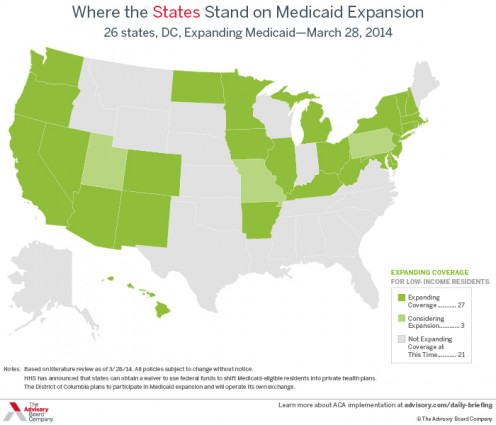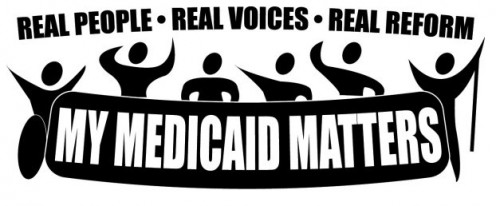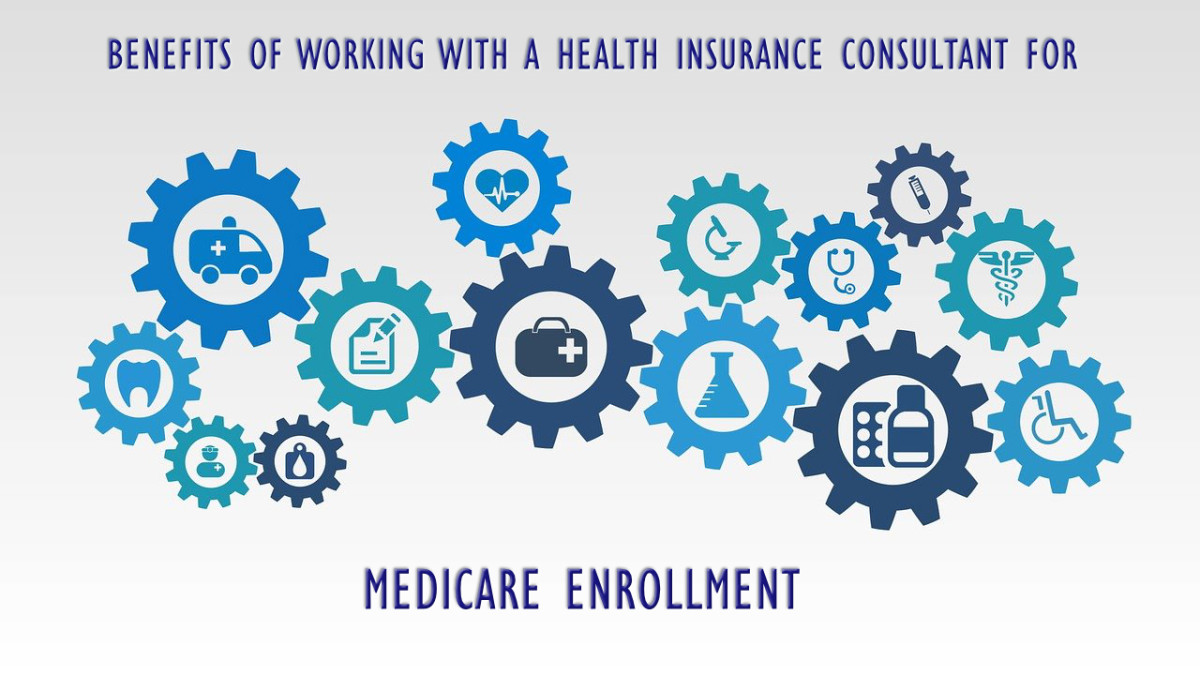A Look at the Poor Treatment of Medicaid Recipients

What is Medicaid?
Medicaid is the healthcare system in the US for those who can't afford private insurance. It is basically the social health care program for families and individuals with low income and resources. Medicaid recipients must be US citizens or legal permanent residents, and may include low-income adults, their children, and people with certain disabilities. The program is funded by the federal and state governments. Medicaid is currently the first or second largest budget item in all 50 states and going through a massive expansion under President Obama's health-care reform law. With the expansion of Medicaid eligibility, the "Affordable Care Act" was supposed to go a long way in providing healthcare coverage to millions of uninsured Americans. However the program has faced massive opposition along the way. In addition the expansion of the program has led to many other issues.
Expansion of Medicaid
The Patient Protection and Affordable Care Act significantly expanded both eligibility for, and federal funding of, Medicaid. The law was written to provide coverage for all citizens and legal residents with income up to 133% of the poverty line. This coverage includes adults without dependent children, in any state that participated in the Medicaid program. The federal government would pay 100% of the cost of the expansion in 2014, 2015, and 2016. The federal government would then continue to pay 95% in 2017, 94% in 2018, 93% in 2019 and 90% going forward. However the supreme court ruled that states do not have to agree to this expansion in order to continue to receive previous established levels of Medicaid funding. As of the end of March 2014, twenty seven states agreed to the expansion, including my state of Colorado. The remaining states are continuing with the Pre-Affordable Care Act funding levels and eligibility standards.


The Cost of Medicaid
The cost of Medicaid varies depending on the care and needs of the enrolled. The annual cost per state also varies depending on the state approved benefits along with the state specific care costs. The past recession of 2008-2009 resulted in a substantial increase in Medicaid enrollment of 15% or more, resulting in heavy pressure on state budgets. Therefore medicaid funding has become a major budgetary issue for many states over the last few years. The average state spends 16.8% of state general funds on the program. When including the government match the program takes up 22% of each state's budget. The match varies from state to state, with the wealthiest states only receiving a federal match of 50% while the poorer states receive a larger match.
Medicaid does not pay benefits to any individual directly. They send benefit payments directly to the health care providers. In some states Medicaid requires the recipients to pay a small fee for medical services. The federal law has limited Medicaid to only pay for medically required services, so there are some limitations to services. The implementation of the federal rule to allow states to charge premiums and co-payments does save the states money. However this places more of the burden on the recipients, causing a disincentive for low-income people to seek healthcare, leading to further problems down the road.
At the end of the day, Medicaid is a very expensive program costing more then 450 billion a year. While I agree that it's not wrong to spend money on health care for the less privileged, it is wrong to waste money on a program not as effective as it should be.

Specialists Accepting Medicaid
Specialty
| Accept Medicaid
| Won't Accept Medicaid
|
|---|---|---|
Orthopedic Surgery
| 60%
| 40%
|
Ophthalmology
| 82%
| 18%
|
Psychiatry
| 44%
| 56%
|
Cardiology
| 91%
| 9%
|
Small sampling of rate at which doctors of various areas are willing to accept Medicaid patients.
Coverage Versus Care
There is a definite difference between coverage and care. Regardless of who pays the insurance premiums, doctors provide the care. Despite Medicaid's growing overall cost, reimbursements to medical providers are so low that many refuse to accept Medicaid patients. In addition to the low payments, the program smothers the doctors with paperwork, further deterring them from wanting to accept Medicaid patients. Therefor all the coverage in the world doesn't mean much without doctors to provide care.
A recent study in Health Affairs estimated the percent of physicians from a wide range of specialties who were unwilling to take on new Medicaid patients. I found the numbers astounding! The highest was by far psychiatric care. Medicaid fees are particularly low for psychiatric care, therefore limiting providers willing to provide this type of care. Overall, Medicaid typically pays physicians 56% of the amount private insurers pay. At these low rates, doctors simply can't afford to provide care. If they are only receiving about 17$ per visit, it isn't long before they can't pay their staff, or rent for their facility. In many cases it's not that doctors don't want to provide the care, they can't afford it with such low reimbursement rates.
Physicians have to be willing to see patients and if Medicaid doesn't pay well enough to encourage physicians to see patients, or they are too slow to pay off the claims, less and less physicians will be willing. As a result it is becoming increasingly difficult for Medicaid patients to find access to primary and specialty care physicians. Ultimately the hardest thing for a Medicaid patient to do is to get a doctor's appointment.
Coverage Poll
What Coverage Do You Have
Is Medicaid Truly Better Then No Insurance?
A University of Virginia study found that Medicaid patients that ended up hospitalized for surgery were 13% more likely to die in the hospital then those without insurance. Late-stage cancer is far more prominent in those with Medicaid then the uninsured. In a Johns Hopkins study of patients receiving lung transplants, it was discovered that 29% of Medicaid patents were more likely to die within three years. It was also found that colon cancer patients with Medicaid had a higher mortality rate, along with a higher rate of surgical complications, then the uninsured.
The main reason for this, leads back to the lack of physicians willing to accept Medicaid. Thereby leaving the recipients with sub-par physicians and care. Not to mention being shuffled from doctor to doctor under the system. Simple illnesses become much worse through the process. In one case there was a young boy that died of a tooth abscess that turned into a brain infection. Had he received the proper care from the very beginning, the outcome wouldn't have been so tragic.
Uninsured patients are more likely to go straight to the emergency room or free clinics, alleviating the time it takes to work through the Medicaid system to schedule care. Due to the difficulty in scheduling preventive care, Medicaid patients are more likely to have serious illness progression by the time they are seen. This leads to the increased late-stage cancer patients within the Medicaid group. Had they had more access to preventative care, cancer diagnoses could be discovered much earlier, when they are far more treatable. In addition, once they are diagnosed its very difficult for them to find qualified surgeons that will treat them, thus leading to an increase in cancer deaths among medicaid recipients.
What is the Answer?
With more and more dollars being spent on the program, the real issues must be addressed. Medicaid recipeints simply do not have access to the same care as those with private insurance. Not to mention they are treated differently. I have a few friends that receive these benefits and have witnessed the difference in treatment first hand. The friends I'm referring to are not lazy, or unwilling to work, but rather in a particular situation due to no fault of their own. Because they do not have access to, and can't afford the ever increasing costs of private insurance, should they be denied medical care? I think not, especially when taxpayers are continually paying more for this particular program along with many others. If the program isn't effective in providing care as designed, then simply expanding it isn't going to help anyone.
At this point we really need a program that actually benefits those in need. Medicaid needs to be reformed to provide consumers with greater access to private insurance. Thereby letting the recipients choose their providers. Put people in charge of their own healthcare. Most important the gap between what Medicaid pays providers versus private insurance must be closed. Once that gap is closed let the people take the money to spend on the doctor of their choice, I'm quite certain this will lead to a far more efficient way in which people actually get health care. I think we would do far better to rely on free markets and individual choice to take the place of the current system and leave the recipients health better off, instead of worse off.








